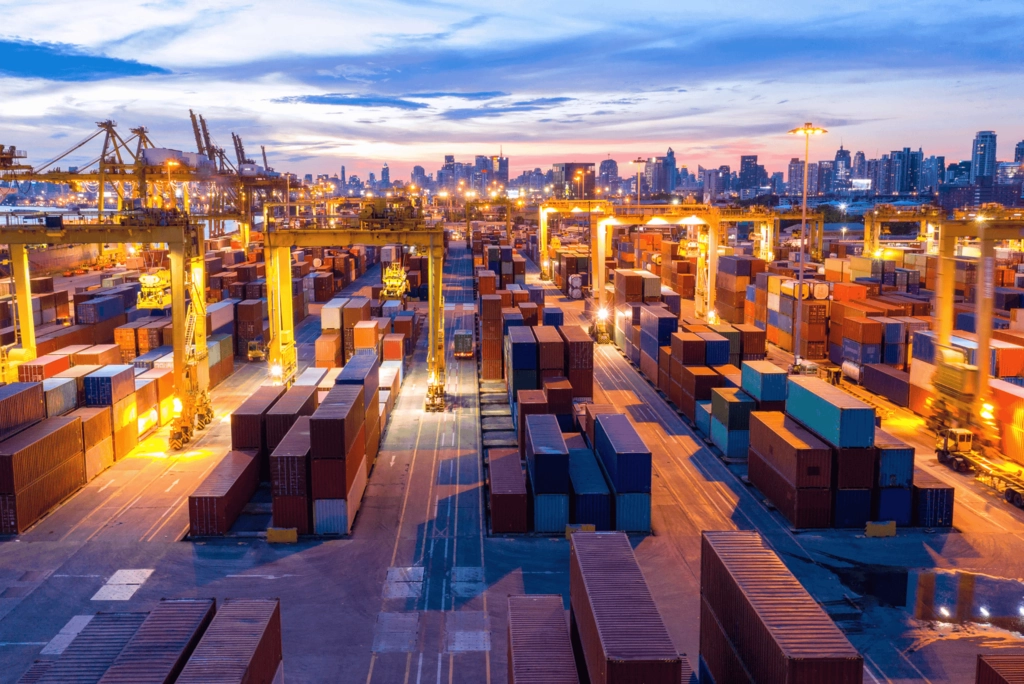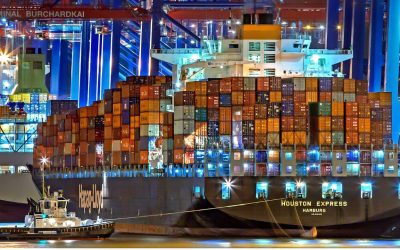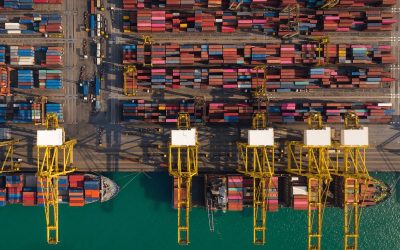A comprehensive understanding of the logistics process is essential to avoiding the costs and complications of a shipment being held up in customs.
Customs delays are a common challenge affecting businesses globally, especially in the tech sector, where heightened security checks on electronic devices and equipment are now standard. This makes it essential to plan proactively to minimize the risk of hold-ups.
Several factors can contribute to a shipment being held in customs. Knowing them can significantly reduce the likelihood of shipping complications. Any customs delay impacts commercial commitments and increases operational costs.
Shipments are often held up due to incomplete or inaccurate documentation (such as commercial invoices, certificates of origin, or permits), mistakes in product classification or tariff codes, security checks, or failure to comply with the destination country’s regulations. Delays in the supply chain can reduce annual revenues by as much as 10% to 15%.
The time required to release goods held in customs can range from one to three weeks, depending on the specific cause and type of product. During this period, the shipping company may incur additional storage fees or penalties for non-compliance.
Standard customs regulations impacting shipment delays for high-tech or electronic products include safety and electromagnetic compatibility certifications (like CE in Europe or FCC in the U.S.), dual-use controls on sensitive goods, import tariffs, and hazardous substance restrictions (such as RoHS in the European Union).

Additionally, many regions are tightening environmental regulations, such as Europe’s Extended Producer Responsibility (EPR), which requires electronics producers to arrange for collection and recycling, adding further steps to the import process.
Other regulations that commonly impact customs clearance include food safety standards, labeling requirements for pharmaceutical products, chemical registrations, and intellectual property certificates to combat counterfeiting.
How to Prevent Your Shipment from Being Held Up in Customs
Thoroughly inspecting goods at origin is necessary to prevent customs delays. At Aerodoc, we manage shipments and imports for customers in countries where they lack a local legal presence, using a pioneering system designed to ensure compliance with the complex regulatory requirements and standards across destination countries. Aerodoc’s origin inspection service involves qualitative and quantitative checks to ensure clients’ shipments meet all import requirements.
“This process saves time and cost in the destination country, ensuring smooth customs clearance with complete alignment between the shipment and its documentation,” says Estefanía Sisatzky, EVP of Operations & Customer Experience at Aerodoc.
Not all Importers of Record (IOR) provide inspections at origin. Sisatzky says, “Conducting these inspections requires skilled equipment handling, understanding the destination country’s requirements, taking necessary photos, and unpacking items carefully so they’re ready for customs clearance.”
The first step in preventing customs delays is to ensure all documentation is complete and accurate. This includes commercial invoices, packing lists, certificates of origin, and any product manufacturing and quality certificates. Knowing each country’s specific requirements is essential for compliance.

If a shipment is held up, prompt action is key. This may involve resubmitting corrected documents or working with a customs broker to provide additional information.
What Not to Do if Your Shipment Is Delayed
When a shipment is held up in customs, it’s critical to respond quickly. However, rushing can lead to mistakes, such as providing inaccurate or incomplete information, complicating the clearance process. Cooperating fully with customs authorities is also essential if they request additional data or documentation.
One of the biggest pitfalls when dealing with unexpected customs delays is not having a proactive logistics plan to handle potential supply chain interruptions. When facing customs delays, companies should have a ready-to-implement action plan to resolve the issue efficiently.
Partner with a Strategic International Logistics Provider
Working with a logistics partner like Aerodoc throughout this process is critical to avoid unnecessary delays and keep projects on track. Our customs experts ensure that your shipments reach their destinations smoothly.
While the extensive regulations governing international trade can complicate customs processes, partnering with a provider like Aerodoc strengthens your industry position and prepares you to enter new markets.
Our Delivery Duty Paid (DDP) service and Importer of Record (IOR) solutions ensure sensitive technology imports reach countries where your company may lack a legal entity.
Aerodoc’s team of global experts efficiently manages documentation, leveraging technology to streamline procedures and minimize export and import costs. To maximize efficiency, we follow tailored standards for each region, helping to avoid inspection channels or resolve any that may arise quickly.
Contact our team of specialists to learn more about our services.
Q&A
What are the primary reasons a shipment might be held in customs?
Shipments are frequently held in customs due to issues with documentation (such as commercial invoices, certificates of origin, or required permits), product classification or tariff code mistakes, security screenings, or non-compliance with the destination country’s specific regulations. Additional factors like safety standards (e.g., electromagnetic compatibility certifications) and environmental restrictions can contribute to delays in customs for technology products.
What impact does a held shipment have on a company’s operations?
A held shipment can disrupt the supply chain, increasing operational costs through storage fees and penalties. Such delays can also affect commercial commitments, customer satisfaction, and overall supply chain efficiency, potentially leading to missed opportunities or strained client relationships.
What preventative measures can be taken to avoid a shipment being held in customs?
To reduce the risk of delays, it is essential to ensure all required documentation is accurate and complete, and to conduct a thorough physical inspection of goods at origin. This verification ensures that the shipment aligns with the regulatory requirements of the destination country, reducing the likelihood of customs issues.
What is the most critical step if a shipment is already held in customs?
The priority is to identify and correct any documentation mistakes. Engaging a customs broker or local customs agent to provide additional information or clarification can expedite the release process. A prompt and accurate response is key to minimizing additional delays and costs.
What mistakes should be avoided when dealing with a shipment held in customs?
Avoid rushing to provide incomplete or inaccurate information, which can lead to further complications. It is also crucial to fully cooperate with customs authorities, as their assistance is essential for a smooth release process. Attempting to bypass or delay collaboration can worsen the situation, leading to prolonged holds and increased costs.




